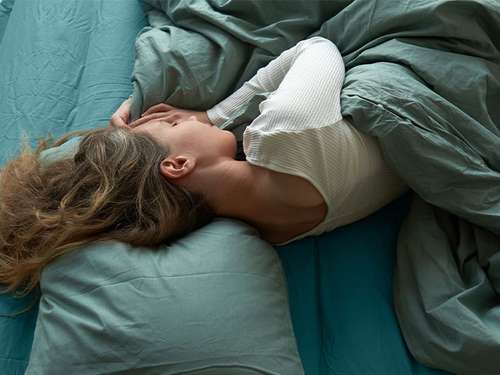As a new parent, it is normal to worry about your newborn. From worrying about how they eat; what food is best for them, how to lay them down, and how to keep them safe and healthy, new parents usually have a long list of concerns when it comes to their newborns, and that, again, is quite fine.
What is not fine is this worry spiraling out of control, keeping you on edge all the time, and giving you sleepless nights. This condition of constant concern is known as Postpartum anxiety.
What is Postpartum Anxiety?
Postpartum anxiety is a condition of severe anxiety after giving birth. This condition is mostly common with first-time parents. A family is expected to experience some level of worry after welcoming a new baby to your family. However, if the worry becomes all-consuming or keeps you on the edge all through the day and night, then you have postpartum anxiety. Irrational fears or excessive worries are some of the symptoms of this condition.
How To Discover Postpartum Anxiety?
First-time parenting can be very overwhelming and most of the time, you may end up worrying about unnecessary things. If you find yourself constantly worried, the odds are high that you have postpartum anxiety.
Here are some examples of how postpartum anxiety could play out:
- Always keep watch over your baby during the day and all through the night due to the thought that your baby may stop breathing in their sleep.
- Being afraid of leaving your baby alone with anyone except yourself including your spouse.
- Being unable to leave your house without your baby because of fear of the unknown.
Signs Of Postpartum Anxiety?
Worrying is your body's way of responding to danger or threats. If you have postpartum anxiety, you may always feel like your baby is in danger. The symptoms you feel are your body's way of reacting to this constant sense of worry or fear.
Signs of postpartum anxiety are both physical, emotional, and behavioral:
- Sleeplessness.
- Heart palpitations or increased heartbeat.
- Feeling nausea or stomach aches.
- Unable to breathe or short of breath.
- Loss of appetite.
- Having trouble sitting still.
- Muscle tension.
- Inability to keep calm.
- Racing thoughts and thoughts of worst-case scenarios.
- Irrational fears
- Inability to focus or forgetfulness.
- Irritability.
- Fear.
- Avoid engaging with certain activities, people, or places.
- Being overly cautious.
- Checking things over and over again.
- Being controlling.
Certain conditions like panic disorders can also affect new parents during the postpartum period.
It is advisable to visit a healthcare provider about all the symptoms you feel to seek help.
Does Postpartum Anxiety Go Away?
Postpartum anxiety doesn't go away on its own. This condition can last for about two weeks and sometimes continues indefinitely in moderate or severe untreated cases. There are available treatments for postpartum and getting treated by a healthcare provider is the best way to recover from this condition. Do not let the stigma that comes with anxiety stop you from seeking medical attention.
The Bottom Line
Postpartum anxiety is a serious condition that affects new parents, causing excessive worry and fear. Recognizing the signs early, such as sleeplessness, irrational fears, and physical symptoms like heart palpitations, are some of the ways to seek help.
While it may not go away on its own, effective treatments are available, and with proper support, recovery is possible. If you experience persistent anxiety after childbirth, consult a healthcare provider to prevent long-term effects and ensure the well-being of both you and your baby.




